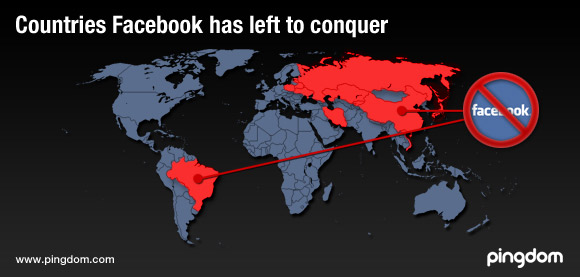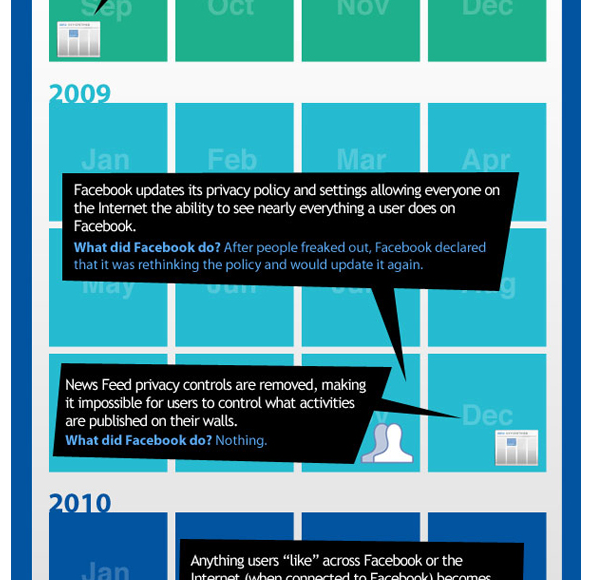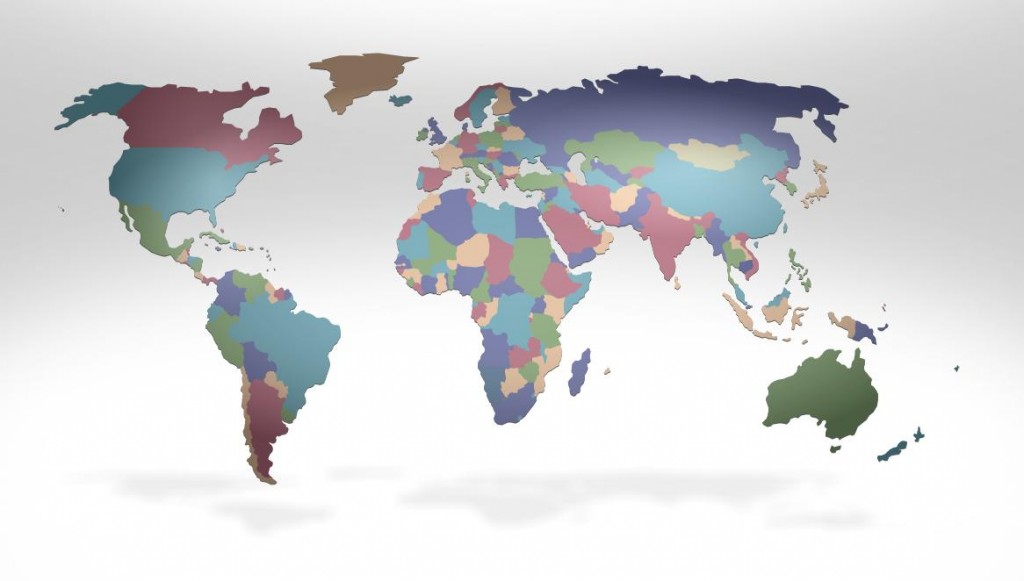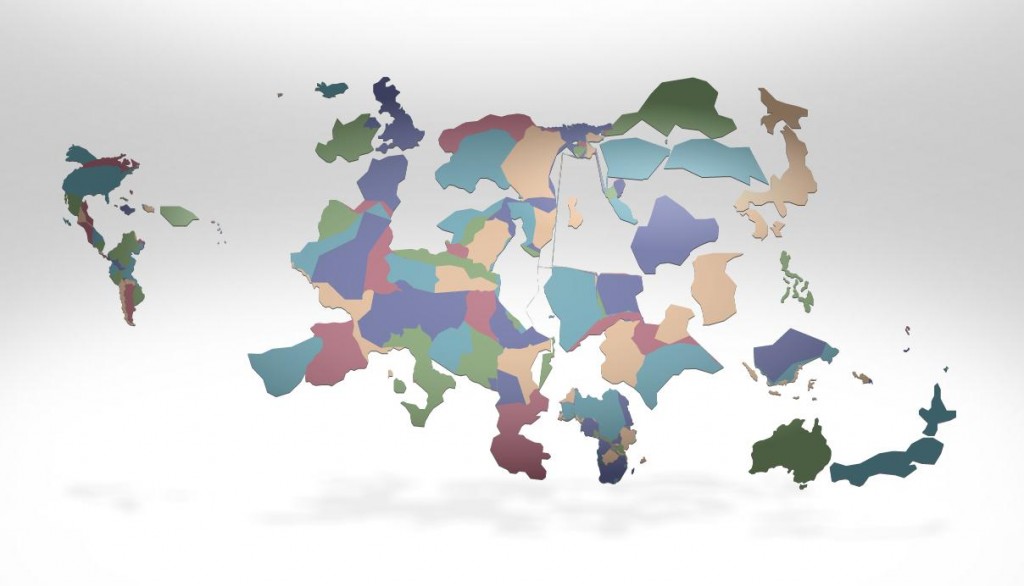- Facebook has conquered “the west” almost entirely, as well we South-East Asia and Oceania/Australia.
- Since it’s blocked in China, Facebook has pretty much zero market penetration in the world’s largest online market.
- Facebook is still weak in Japan, which is also one of the world’s largest online markets.
- Facebook is significantly less popular in much of Eastern Europe and Russia than in the rest of Europe.
Via Royal Pingdom.









